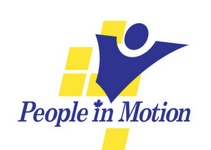Children with disabilities live with challenges early in life that can make even everyday tasks a struggle. However, these children have enormous potential and many can beat the odds to live fulfilling lives. While some children manage to rise to the challenge on their own, others do not have the tools they need to thrive, or simply need an extra boost to help them live up to their potential.
If you have compassion for children with disabilities and you’d like to find a fulfilling career helping them, you have options. There are many jobs that allow you to help children with extra obstacles in life—you just need to find one that suits your skills and personality. Here are 4 of the top careers you might want to explore if you’re interested in helping children with disabilities.
Why Helping Children with Disabilities Grow and Develop is Crucial
Building resilience is important for any child, but it’s especially important for children with disabilities. Because they have additional obstacles to deal with, it’s important that they develop the tools to persevere when the going gets tough. Issues like bullying or difficulties completing schoolwork can take a toll on a child’s mental health, and these affect children with disabilities disproportionately. By giving these children extra help and encouragement, they can develop self-confidence and self-worthso they can live lives that are as full and happy as children without physical or mental challenges. We need people taking on careers to help these children to be a resource they can count on.
1. Behavioral Analyst
A behavioral analyst applies the science of behavior to understand why people behave the way that they do. This is key in working with children with disabilities, who often exhibit behavior that is difficult to explain or modify.
Behavioral analysts can help parents and educators to understand why a child behaves in a certain way and provide suggestions for intervening and reducing or improving behavior based on the child’s needs. By understanding the cause of unusual or unwanted behavior, analysts can help children integrate more successfully into the world and lead happier lives.
Behavioral analysts typically need to earn a Master’s degree or a Graduate Certificate in Behavior Analysis. The average salary for a board-certified behavior analyst is around $60,000 per year.
Check out these resources to learn more about studying behavior analysis:
2. Clinical Psychologist
Children’s disabilities can be mental, physical, or a combination of the two. Even children whose disabilities are only physical may experience emotional distress from how they are treated by others. For children who need mental health support, psychologists can play a major role. They may offer counseling and create a treatment program to help children overcome mental disabilities or cope with stresses in their lives. Clinical psychologists work in a range of settings, from private practice to schools or other institutions.
To become a clinical psychologist, a PhD or Psy.D. is typically needed—a path that starts with a Psychology bachelor’s degree. Average salary for clinical psychologists is around $75,000 per year, but may be much more depending on the setting.
3. Social Worker
Social workers improve the lives of children with disabilities every day through their vigilance and dedication to creating positive outcomes. Most social workers provide guidance and oversight to help children thrive in their current environment or ensure that they are cared for in a more beneficial environment. Their job is to find solutions with children’s best interests at heart.
Although social work is a rewarding field, it is emotionally challenging. Those who are interested in this field must understand this and be prepared for the reality of working with families who do not have the resources to work through obstacles on their own. Social workers need to earn a Master’s degree to begin working and earn an average of around $45,000 per year.
No worries though, there are a ton of online social work programs where you can study without having to quit your job. One of the topic programs is Ohio University’s Master in Social Work Online where students can study at their own pace and timeline to accomplish their career goals.
If you’re interested in learning more, check out these programs:
4. Children’s Nurse
Many careers that involve working with children with disabilities are focused on assisting with behavior and mental health, but children’s nurses have the opportunity to work with a wide variety of children, both with physical and mental disabilities. Children’s nurses may assist pediatricians or work in a school or institutional setting to help children and their parents manage health issues.
Nursing is a versatile profession, and there are programs ranging from certifications to a Master’s degree. Higher-level degrees tend to command higher salaries. The overall average salary for a children’s nurse in the United States is about $37,00-83,00 annually.
Similar to social work, nurses interested in moving up in their career can do so without having to quit work by entering an online MSN program.
Interested in learning more about an online MSN education? Then check out Norwich University’s Online Master of Science in Nursing programwhich has all the information you need!
Get the Education You Need to Make a Difference
It’s never been easier to get the education you need to make a difference in children’s lives. With flexible online programs, almost anyone can advance their education to help children. It’s a noble calling that’s needed in all areas of the country!











